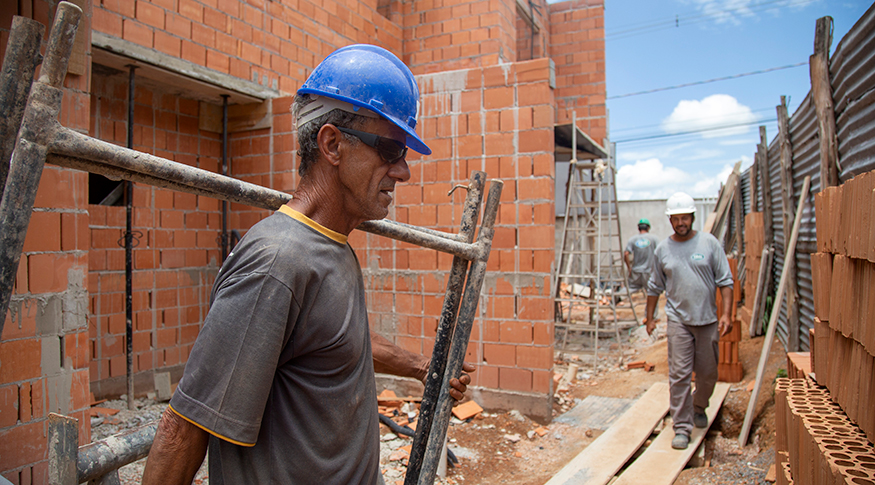Construction industry
Recording its fifth annual decrease, construction industry employs 1,9 million workers in 2018
May 27, 2020 10h00 AM | Last Updated: May 28, 2020 02h02 PM

The number of persons employed in construction industry fell 1.7% in 2018 versus the previous year, with a reduction by 31,5 thousand work positions. Despite the retraction, that was the lowest decrease in workforce in the sector since 2014. The value of wages, withdrawals and other compensation, in real terms (deflated by the INPC), also recorded a decrease, 3.2% against 2017.
These results area found in the Annual Survey of Construction Industry (PAIC), released today (27) by the IBGE.
A total 1,9 million persons were employed in construction in December 2018. The sector had 124,522 active companies, having recorded a decrease of 1.4% against 2017. In nominal figures, the activity amounted to R$ 278 billion, including real estate development and construction works and/or services, out of which R$ 264 billion referred to works and/or services alone.
In construction, the activity with the biggest participation was building construction, with 45.5%. Infrastructure works recorded 31.15%, whereas specialized construction services represented 23.2%. That share has gained relevance since 2009, when it recorded only 14%.
"It usually grows in period of economic recovery, associated to the restart of the country increase. The segment represents small installation services, renovations, land preparation and finishing works, for example", says Synthia Santana, manager of the survey.
Public sector loses positions the last few years
The survey also has presented another significant change in the last few years: the public sector has lost its representativeness. In 2009, it accounted for 43.2% of the construction industry, but that figure fell to 30.7% in 2018.
The three segments of activity recorded decrease: building construction fell by 6.7 percentage points, and stayed at 21.9%. Specialized construction services went from 20.4% to 19.3%. Infrastructure works, with the main share, changed from 61.5% to 50.4%.
According to Synthia, those figures refer to the impact of the interruption of major public construction works, such as those of the Growth Acceleration Program (PAC). "The country has faced some political and institutional instability and some decreases are connected to such problems", Ms. Santana explains.
In 10 years, Southeast and South record reduction and expansion of participation, respectively
In the regional analysis between 2009 and 2018, the Southeast registered a decrease in participation, but it still leads in terms of contribution to the value of real estate development and construction works and/or services: from 54.5% to 49.2%. The Northeast (18.7%), South (17.2%), Central West (8.7%) and North (6.2%) complete the scenario of construction in the country.
In terms of number of construction workers, the Southeast Region recorded the smallest decrease in participation, from 50.2%, in 2009 to 48.2% in 2018, but yet placed as number one. The other regional results were: Northeast (20.4%), South (16.9%), Central West (8.3%) and North (6.2%). the only Major Region recording a decrease against 2009 was the South, the participation of which increased by 3.3 percentage points in the period.




















